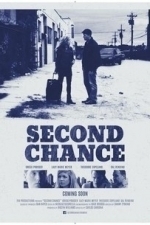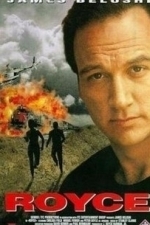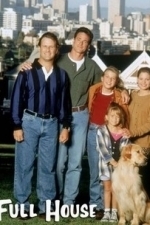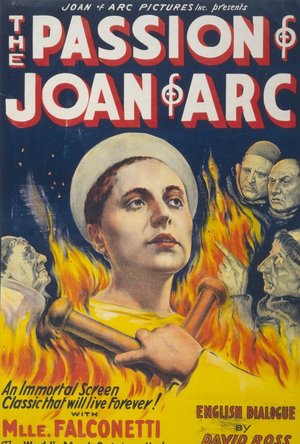Search
RəX Regent (349 KP) rated The Passion of Joan of Arc (1928) in Movies
Feb 19, 2019
Silent cinema is not my strongest subject but one which I have been making a concerted effort to learn about over the past decade, but admittedly at a slow pace. The idea of sitting through a silent film can seem to be chore to a modern audience and to be honest, it can be inconceivable to the vast majority, but these attitudes only serve to deprive us of 30 years of cinema, both in primitive evolution and cinematic excellence.
The notion is that silent movies where almost amateurish is style, a three decade long film school to keep up occupied until the Talkies turned up and “film” as we know it, was born. This is wrong. Film is visual medium, Movies, moving pictures, all of which were accompanied by music by the way, so the term “silent” only really refers to the lack of synchronized sound and dialogue.
ydvjeYet, the core of film is visual. Modern cinema is a about perfecting the mesh of media forms, music, photography, narrative and sound. But without dialogue, silent movies had a challenge on their hands and one which The Passion Of Joan Of Arc, one of the last silent movies of the era, rose to perfectly.
Visually, this could have been made yesterday. A truly timeless blend of artistic and innovative cinematography, fast paced editing and outstanding performances. The Danish director, Carl Theodore Dreyer mastered the close up, naturalistic acting and manages to tell the procedural story of the trial of Joan Of Arc in such a gripping manner that you will forget that there is no spoken dialogue, yet you are literally putting the intertitles in to the mouths of the cast.
Not a single cast member is wasted, with every one pouring their hearts and souls in to the camera in such nuanced ways that it can be left to debate and interpretation as to exactly who is thinking or feeling what as Joan, Maria Falconetti in her third and final film role, steals the screen with her tortured soul and face shown almost entirely in close up.
the-passion-of-joan-of-arc-large-pictureOver acting has given way to strong acting, each shot designed to allow us access to her soul as she, in a plot not to dissimilar from the last hours of Jesus Christ, is torn between torture and certain death of abandoning her faith and spending the rest of her life imprisoned with only bread and water to look forward too.
The script is based on the actually accounts of the future saint’s trial in 1431 but the real events took place over 18 months whilst this either compresses this into one day or takes place on the last one, but the feeling is that this is the one and only trial of Joan so in that sense, theatrical licence has been taken but it hardly matters. The facts are present and the story is harrowing, made more so by an almost perfect production, led by a controversial, almost Kubrickian director, forcing his cast to suffer for their art, yet this version of events is also contested.
joan-of-arc-soundtrackFor everyone out there who believes that Silent movies are just cut to the chase comedies, or overly flamboyant and patronising filler until “real films” are made, this may just serve as wake up call, that films have evolved, but Sound would actually set the industry back in the 1930’s, as the new audio based art form evolved just as movies had up until this point., but Joan Of Arc should help all see that film has always been able to convey anything, from humour to horror; Real of make-believe.
Many believe that this movie is one of the best ever made and I do believe that to be true. An outstanding and forgotten film to all but critics and film buffs, one which everyone should see.
VERSION
The version which I watched was The Criterion Edition of the 1985 restoration of Dreyer’s “Lost” original cut. The music to this film was never deemed to be that important so there are several compositions which have been attached to the film over the years.
The “Lo Duca” cut, which was the a 61 minute version (1951) doing the rounds for years after the original cut was lost in a fire soon after the film’s release, was cut together by Joseph-Marie Lo Duca after discovering a negative in a vault. This version, as well as the “Director’s Cut” are both available on the Blu-ray, whilst it appeared that the 1985 restoration (Director’s Cut) is more widely available on DVD.
The notion is that silent movies where almost amateurish is style, a three decade long film school to keep up occupied until the Talkies turned up and “film” as we know it, was born. This is wrong. Film is visual medium, Movies, moving pictures, all of which were accompanied by music by the way, so the term “silent” only really refers to the lack of synchronized sound and dialogue.
ydvjeYet, the core of film is visual. Modern cinema is a about perfecting the mesh of media forms, music, photography, narrative and sound. But without dialogue, silent movies had a challenge on their hands and one which The Passion Of Joan Of Arc, one of the last silent movies of the era, rose to perfectly.
Visually, this could have been made yesterday. A truly timeless blend of artistic and innovative cinematography, fast paced editing and outstanding performances. The Danish director, Carl Theodore Dreyer mastered the close up, naturalistic acting and manages to tell the procedural story of the trial of Joan Of Arc in such a gripping manner that you will forget that there is no spoken dialogue, yet you are literally putting the intertitles in to the mouths of the cast.
Not a single cast member is wasted, with every one pouring their hearts and souls in to the camera in such nuanced ways that it can be left to debate and interpretation as to exactly who is thinking or feeling what as Joan, Maria Falconetti in her third and final film role, steals the screen with her tortured soul and face shown almost entirely in close up.
the-passion-of-joan-of-arc-large-pictureOver acting has given way to strong acting, each shot designed to allow us access to her soul as she, in a plot not to dissimilar from the last hours of Jesus Christ, is torn between torture and certain death of abandoning her faith and spending the rest of her life imprisoned with only bread and water to look forward too.
The script is based on the actually accounts of the future saint’s trial in 1431 but the real events took place over 18 months whilst this either compresses this into one day or takes place on the last one, but the feeling is that this is the one and only trial of Joan so in that sense, theatrical licence has been taken but it hardly matters. The facts are present and the story is harrowing, made more so by an almost perfect production, led by a controversial, almost Kubrickian director, forcing his cast to suffer for their art, yet this version of events is also contested.
joan-of-arc-soundtrackFor everyone out there who believes that Silent movies are just cut to the chase comedies, or overly flamboyant and patronising filler until “real films” are made, this may just serve as wake up call, that films have evolved, but Sound would actually set the industry back in the 1930’s, as the new audio based art form evolved just as movies had up until this point., but Joan Of Arc should help all see that film has always been able to convey anything, from humour to horror; Real of make-believe.
Many believe that this movie is one of the best ever made and I do believe that to be true. An outstanding and forgotten film to all but critics and film buffs, one which everyone should see.
VERSION
The version which I watched was The Criterion Edition of the 1985 restoration of Dreyer’s “Lost” original cut. The music to this film was never deemed to be that important so there are several compositions which have been attached to the film over the years.
The “Lo Duca” cut, which was the a 61 minute version (1951) doing the rounds for years after the original cut was lost in a fire soon after the film’s release, was cut together by Joseph-Marie Lo Duca after discovering a negative in a vault. This version, as well as the “Director’s Cut” are both available on the Blu-ray, whilst it appeared that the 1985 restoration (Director’s Cut) is more widely available on DVD.




